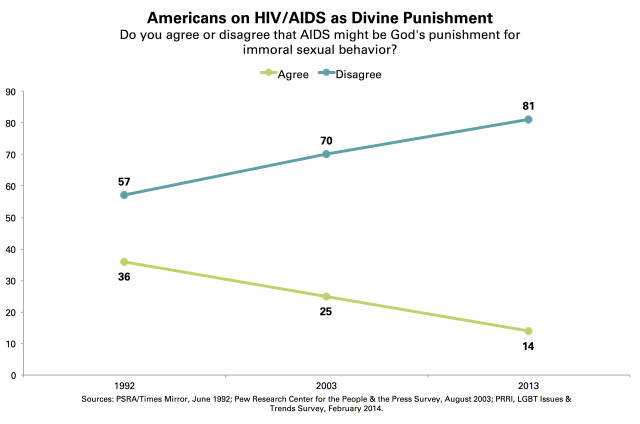Today is the 27th annual World AIDS Day, a global health day aimed at continuing the fight against HIV and supporting those living with the disease. Decades after the establishment of World AIDS Day, we look at how attitudes on HIV and AIDS have changed and how much of a priority the issue is for Americans today.
Over the span of twenty years, American attitudes about the cause of HIV and AIDS have shifted dramatically. In 1992, more than one-third (36 percent) of Americans agreed that AIDS might be God’s punishment for immoral sexual behavior; in 2013, only 14 percent said they agreed with this statement.
Despite the devastating toll wrought by HIV/AIDS, the disease remains a low priority for most Americans today. Only one-third (33 percent) say the disease is a critical issue to them personally. However, concern is much greater in certain communities, with black Americans more likely than white Americans to say it is a critical issue (61 percent vs. 26 percent, respectively).
Notably, only about half (53 percent) say people with HIV or AIDS face a lot of discrimination in the U.S. today.
Findings are based on PRRI’s survey “A Shifting Landscape: A Decade of Change in American Attitudes about Same-Sex Marriage and LGBT Issues.”
